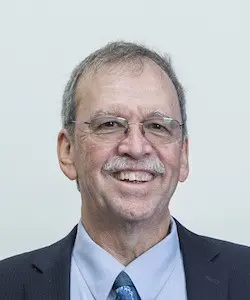
Michael F. Conway (BSChE ’78)
Retired president, Shell Trading, Royal Dutch Shell
Michael is a chemical engineer who rose to the top of the international oil trading business while serving as an exemplar for management practices that reflect his values of integrity and civic responsibility.
How did your experience in the College of Engineering shape your career path?
What you’ve really got to get out of your university experience is to learn to adapt to change when you’re faced with questions you’ve never had to face before. How do you work yourself through it? I think the engineering degree is really good at that—to help you solve problems, to continue learning, and put the pieces together. That made a made a big difference for me in my professional career.
Why did you choose engineering and decide on your major?
Growing up, I loved science. When I was six or seven, I took the 12-volt transformer from my racing car set, put the terminal wires in water and added salt to see if I could separate the water into hydrogen and oxygen. I used table salt as the electrolyte and created chlorine gas instead, which caused a bit of a problem in my bedroom. Figuring out why it didn’t go the way I planned it was interesting as well. In my senior year of high school, I wanted to choose a college discipline that had lots of chemistry, physics and math. Chemical engineering was a natural fit.
Was there a class that made an impact on your future?
The transport phenomena class Professor Bird taught got me hooked on rheology and polymer flow. Professor Hill taught reactor engineering. That combination led into polymer chemistry, rheology and reactor engineering which influenced where I went to work after graduation.
How did you spend your free time as a student?
I spent my free time down in the basement of Union South playing ping pong. I would attend the home football and hockey games. I was the head of the chemical engineering society (AIChE) and I joined the chemistry fraternity Alpha Chi Sigma. I was taking 15 to 20 credits a semester, so I didn’t have a lot of spare time.
What advice or what advice would you give students today?
Do something you really have a passion for. If you enjoy it, it’s not work anymore. Having an engineering degree teaches you to continually learn, well after you leave university.
Anything else you’d like to tell us?
My father was a firefighter, and if he passed intro college chemistry he would get a pay increase. When I was a junior, I had to tutor him through freshman chemistry at UW—One of the hardest things I had to do. I have a lot of respect for teachers and tutors after this experience. BTW: He did pass!